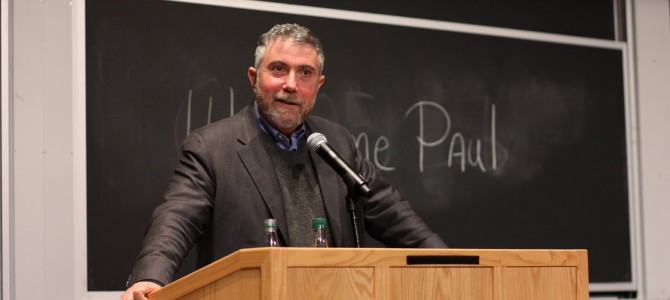In this week’s edition of “How Mentally Slow Leftists Undermine Themselves Without Even Knowing It…”
There’s a popular theory on the left for why frustrating labor shortages persist, even after those sweet federal COVID unemployment benefits have dried up. Here’s how Paul Krugman of The New York Times put it Thursday:
Well, it’s only speculation, but it seems quite possible that the pandemic, by upending many Americans’ lives, also caused some of them to reconsider their life choices. Not everyone can afford to quit a hated job, but a significant number of workers seem ready to accept the risk of trying something different — retiring earlier despite the monetary cost, looking for a less unpleasant job in a different industry, and so on.
People like Krugman believe the labor shortages are actually a good thing (he literally writes in that same piece, “Overall, it’s a good thing”) because they represent a sense of would-be workers being fed up with having been treated and paid poorly by employers, particularly in the service and hospitality industries.
“Long-suffering American workers, who have been underpaid and overworked for years, may have hit their breaking point,” wrote Krugman, who once claimed that child pornography ended up on his computer by no fault of his own.
The implication from the left is that if you want the service and hospitality industries to go back to normal, greedy employers are going to have to pay their staff more and grant them better benefits. Either that, or there needs to be a significant bump in the federal minimum wage.
But the truth is that no one right now knows why companies and businesses are unable to hire enough people to meet the surge of consumer demand that has followed the economic reopening, even as employers offer wild bonuses and pay increases. The Times in September reported the findings of one survey that “found more than 1,600 restaurants that were paying an average wage of $13.50 plus tips across 41 states — states where earlier this year the vast majority of restaurants paid a tipped minimum wage of $5 or less.”
In other words, a lot of workers are or could be making more than double their previous earnings in the same job.
And yet, according to the Krugman theory, the jobs simply suck so much that even an eye-popping raise can’t get these people back. Krugman is never right but assuming he is, his theory doesn’t answer for how millions of people are existing without the added federal COVID unemployment welfare and without a job income to replace it.
Are they living off of savings? Are they choosing credit card debt over a paycheck? That question is never addressed.
But, again, also assuming Krugman is right, this theory undermines two of the left’s greatest obsessions: The need for a federal minimum wage hike and the push for more cash welfare to regular people (childcare subsidies, free health insurance, universal basic income, etc.).
If all of these people, numbering in the millions, are able to walk away from these supposedly miserable jobs, even after a hefty pay increase to entice them back, and subsist off of nothing more than their newly freed spirits, what’s the point of a higher minimum wage? If they don’t want the jobs that are now paying more than double what they had been by way employers voluntarily increasing salaries, what difference would a government-mandated raise have made?
And if even after the eviction moratorium and the additional federal unemployment benefits have lapsed, would-be workers are still just fine choosing not to work, why would yet more welfare be necessary?
The logical end to the Krugman theory is that none of it is necessary. These people would rather have nothing and not work than go back to a job that they hate.
It’s dubious, but when is the left not?









